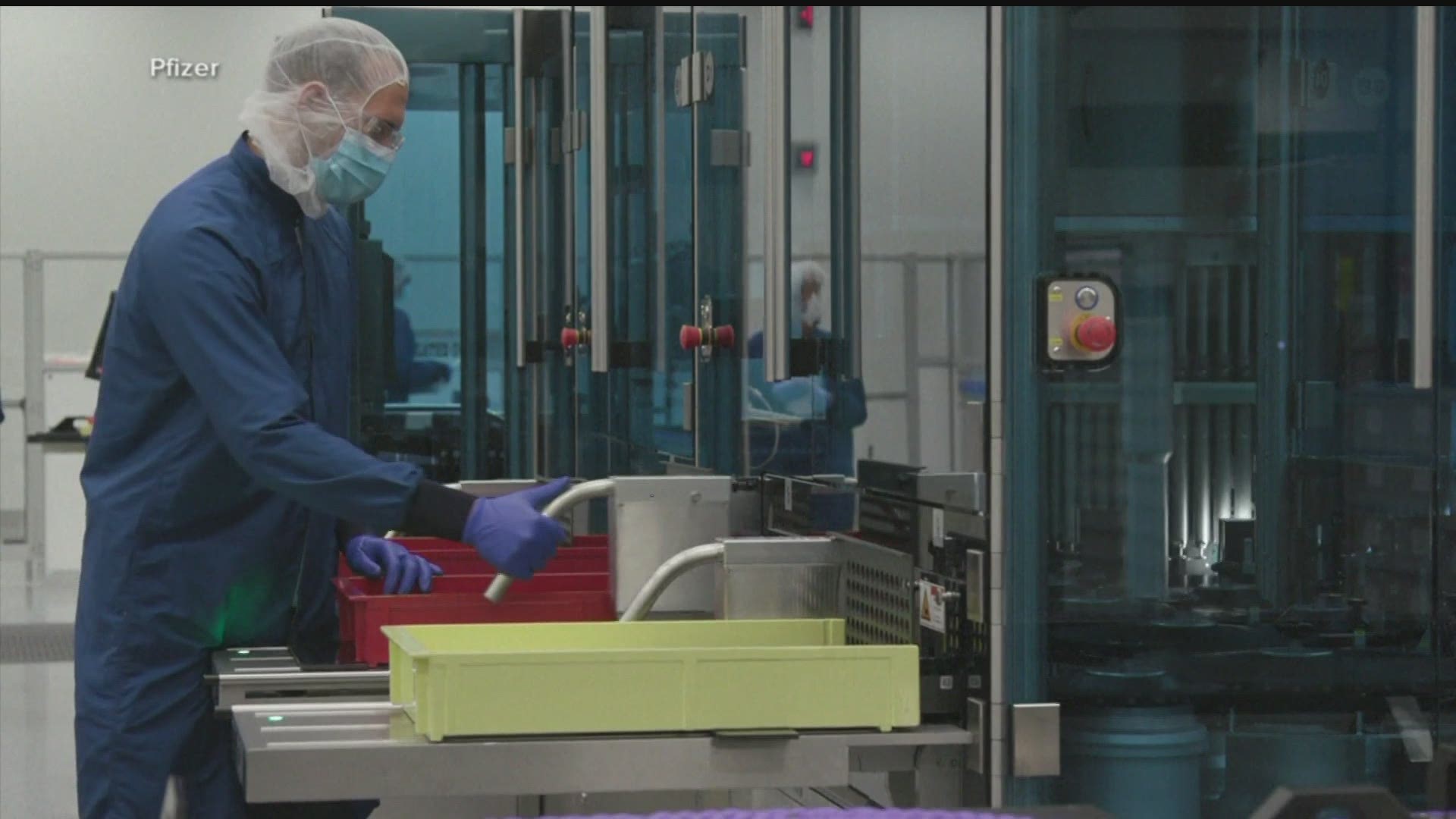DES MOINES, Iowa — As truckloads of the Pfizer vaccine are sent across the nation, many have questions about it.
Local 5 is On Your Side to let you know what we know about the vaccine.
Have any questions on COVID-19 vaccines? Email Local 5 or send us a text at 515-457-1026.
The United States is the sixth country to authorize the Pfizer vaccine and begin administering it to citizens
Trucks began to deliver the vaccine on Sunday morning to nearly 150 distribution centers across the country.
An additional 425 sites will get shipments Tuesday, and the remaining 66 on Wednesday.
The vaccine requires two doses spaced 21 days apart
The majority of COVID-19 vaccines will require two doses, but the number of days between the doses varies.
The Pfizer vaccine will be spaced 21 days apart.
The Pfizer vaccine has a 95% efficacy rate.
This efficacy rate means that the vaccine will offer good protection against COVID-19.
Vaccine efficacy is the percentage reduction of disease in a vaccinated group of people compared to an unvaccinated group.
The vaccine has side effects.
Side effects from the Pfizer vaccine include body aches and a fever.
It's not a bad sign to have these side effect, but means the vaccine is working in your body.
These people won't be getting the Pfizer vaccine
Pregnant women, kids younger than 16, immunocompromised people and those who have a history of severe allergic reactions will not get the vaccine.
Pregnant women and children were excluded from the Pfizer studies, so it's unknown how they could react to the vaccine. Pfizer has since started to study how it affects children as young as 12 years old.

